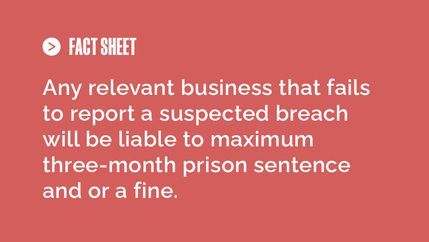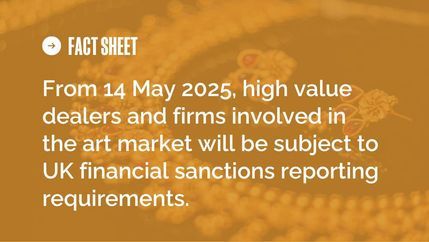
From 14 May 2025, all letting agents in the UK have been classified as 'relevant firms' under financial sanctions regulations, placing significant reporting and compliance responsibilities upon them. These changes are designed to strengthen the UK’s sanctions regime by ensuring greater transparency and accountability in the private rented sector.
See OFSI general guidance on sanctions reporting →
Confusion over current regulations
There are critical inconsistencies between financial sanctions and AML regulations, with financial sanctions reporting requirements applying to all letting agents irrespective of the rental value, whereas AML regulations only cover properties with monthly rents of €10,000 or more. This creates confusion, leading to uneven compliance. Our response also draws attention to the complexity faced by multi-disciplinary property businesses that offer both sales and lettings.
Propertymark recommends extending AML supervision to include all letting agents regardless of rental value thresholds. This would ensure uniform compliance, reduce economic crime risks, and simplify regulatory oversight.
Insufficient guidance and support
A major concern is the lack of clear guidance provided by the Office of Financial Sanctions Implementation (OFSI). Propertymark has highlighted that letting agents frequently struggle to understand and implement effective sanctions policies, potentially leading to unintentional breaches and legal repercussions.
We also note the absence of clear guidance on handling existing or prospective tenancies when individuals become sanctioned. Agents currently face uncertainty about how to proceed with tenants or landlords found on sanctions lists.
The UK Government should provide detailed, practical guidance, including examples of robust risk assessments and sanctions policies. Clear, actionable resources will significantly improve compliance standards among letting agents.
Issues with manual screening checks
There is a significant reliance on manual checks by letting agents, a process that is time-consuming and prone to human error. Many agents find digital screening tools too costly or complex, leading to inconsistent compliance across the sector.
OFSI and HMRC should simplify the process for submitting Suspicious Activity Reports. Clearer guidance and real-world examples from the property sector should be made available to illustrate the SAR submission process, improving confidence and accuracy in reporting.
Propertymark suggests developing a standardised SAR form specifically designed for the property sector. Easy-to-follow guidance and training should accompany the new forms, making it straightforward for agents to comply.
Regulation of property agents
The sales and lettings sectors, property auctioneers and high-value dealers are all attractive targets for those looking to launder money. Both small and large agencies are susceptible to criminal activity. The London property market and the wider UK housing market are highly desirable options and affected by financial crime. While the property sector remains largely unregulated and without minimum standards to operate, the industry is vulnerable to attack.
The UK Government should urgently implement mandatory regulation of estate and letting agents in line with the Regulation of Property Agents (RoPA) recommendations. Regulation would ensure consistent professional standards, training requirements, and enhanced oversight.






